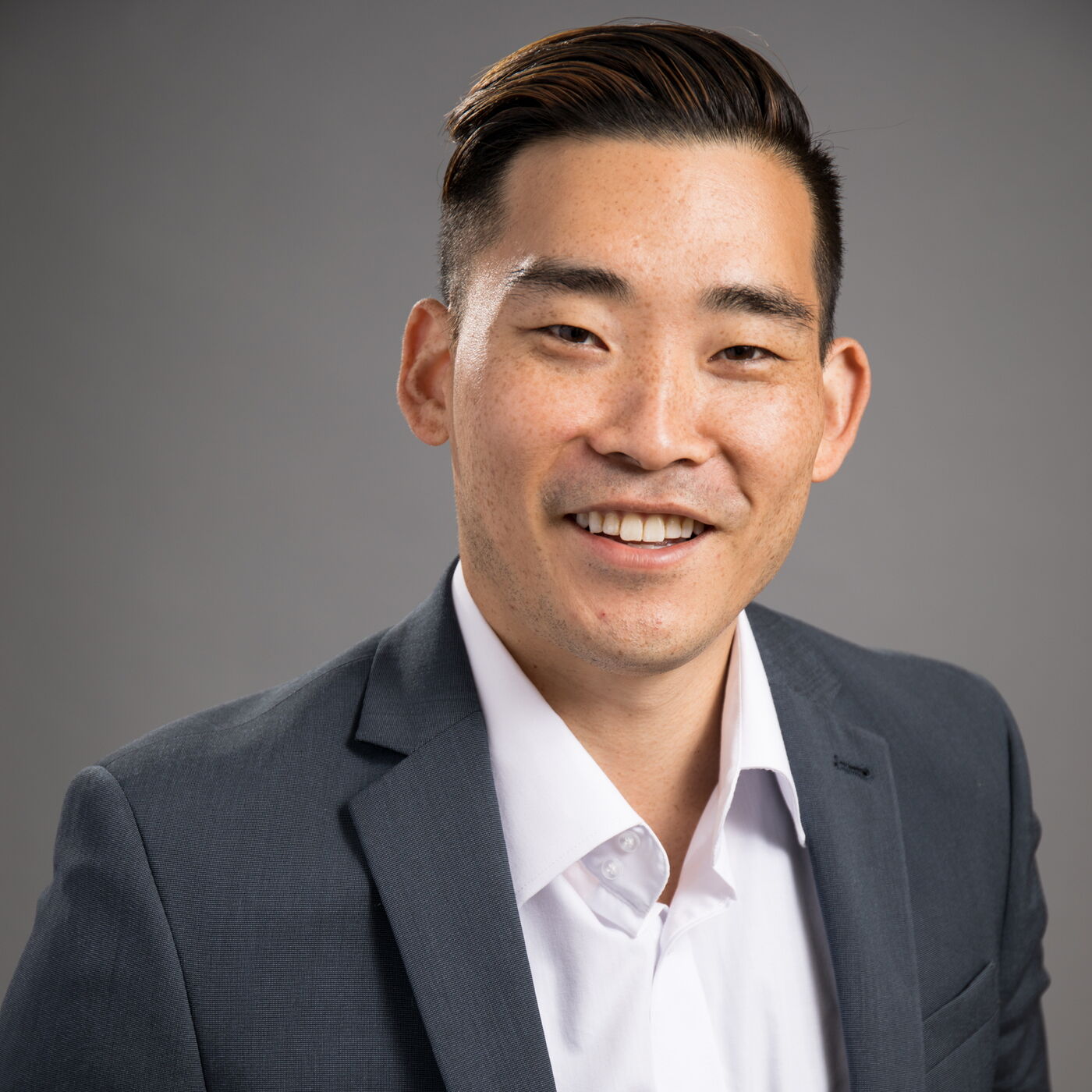Wealth Building with Lane Kawaoka
Is wealth building through real estate a viable and sustainable path for you? Lane Kawaoka talks about what’s required and how to begin!
Listen to us On
About the Episode
We focused on the building wealth through alternative investments, making the transition from single family home investing to syndication, understanding taxes, the value of community and mentorship, and what it takes to get started and find sustainable success, with Lane Kawaoka, Accredited Investor, Wealth Builder, Developer and Syndicator, Coach and podcaster.
Listen to hear a difference-making tip on why you’ve got what you need to find the success you want!
You can learn more about Lane at TheWealthElevator.com, Facebook, YouTube, X, Instagram, and LinkedIn.
Get your copy of The Wealth Elevator here:
Did you get anything out of this episode? Do us a solid and leave a review:
https://ratethispodcast.com/alignedmoneyshow
Learn more and engage at MoneyAlignmentAcademy.com, Twitter, LinkedIn, Instagram, YouTube and Facebook.
Buy George G a coffee (he loves coffee)
https://www.buymeacoffee.com/lifeblood
Have George G speak
https://moneyalignmentacademy.com/speaking/
Financial literacy and wellness for individuals, families, and companies
https://moneyalignmentacademy.com/
Find George G’s books here
The Aligned Money Show is the podcast for Money Alignment Academy, copyright 2024.

George Grombacher
Host

Lane Kawaoka
Guest
Episode Transcript
george grombacher 0:02
lame to get us started. Give me two truths and a lie, please.
Lane Kawaoka 0:06
All right. So I am, I’ve been first one. I’ve been CrossFitting for 12 years. And I can do five lap bar muscle ups in a row. Second one. I I live here in Hawaii. always used to surf. And the third one is I like to fish.
george grombacher 0:40
All right, so 12 years across fit, you could do five muscle ups. You live in Hawaii, you’ve been loving surfing for a long time, and you’d like to fish. Okay, well, you look like a really fit guy. So I believe the CrossFit. Thank you, you’re next to the water. So it’s either you don’t fish or you don’t serve? Mm hmm. I’m gonna guess the you’re not a fisherman.
Lane Kawaoka 1:09
No, I’m not the surfer. All done at once. I paid somebody to teach me one time and we got some pictures. But I grew up on this, I always I was kind of always like a geek, because like, geek is better than a nerd. You know, always taught to go to school, study hard, be an engineer. Never really liked that beach stuff. I prefer pools better, but never liked the sand and all the places, you know?
george grombacher 1:34
Yeah, totally get that. I totally get that. Are you glad that you became a professional engineer, even though you’re obviously not directly using it? You
Lane Kawaoka 1:44
know, people ask me all the time. And from like a career standpoint, it got me in the door of like a fortune 50 company. And I think that’s really helped me today. But more importantly, look, it’s the way I look at it, it’s all a means to the end, it got me a good paying job. And, you know, like real estate is a capital intensive business, you need money to go buy your first rental. That’s what the job does. And, you know, luckily, I didn’t have to stick in it too long. But, you know, I mean, I so thankful that I had like a six figure type of job, right out of college. And that allowed me to save money and you know, prepared the rest of the stuff.
george grombacher 2:26
The means to an end gave you a little bit of money. You’re you have certainly grown and evolved in in what you’re doing now helping people to become financially successful. Do you love learning new things? Is it difficult for you?
Lane Kawaoka 2:45
You know, I I’m definitely more of a operator type of mindset, like, I guess. I mean, I went to school for industrial engineering, which is a lot of systems and processes. And I find myself, you know, building a lot as SOP standard operating procedures. Thankfully, with jet GPT, I can just mutter things along and I can put it into a readable format for my team. And, and that’s, that’s kind of the way my mind thinks. And I think when, you know, like that, like kind of like how some people when they have everything neat and tidy. They really like that. In a way when I have these all these processes and people follow them. It kind of brings a little bit of euphoria to myself, strangely enough. Yeah.
george grombacher 3:29
Well, it doesn’t. It sounds strange to me, it totally resonates and makes sense. I am of the mind that telling somebody to just do it is like the worst advice, because if I have no idea how to do it, how would you expect me to just do it? And it sounds like you’re somebody who wants to give somebody else the steps? Yeah,
Lane Kawaoka 3:47
yeah. Well, I mean, we’re lazy Pete Well, I’m lazy person in reality. So if you can create a system that completed for you, you know, nothing’s better than sitting back and putting your legs up and relaxing and watching the work still get done.
george grombacher 4:01
Yeah, yeah, that’s, I always get a kick out of that the best. What you’re looking for is a really smart person who is a little bit lazy, because they’re gonna figure out how to get other people to do work that needs to get done, good delegator,
Lane Kawaoka 4:16
there needs to be that pain point to do something different to sit down and implement a sop and get other people on board to look at leadership skills in there too. But really no different than like passive income, right? buying assets to eventually produce streams of passive income for you long term. And I think in a way we’re off every day, people like us wake up. We’re trying to make things a little bit better for ourselves and other people to this world. But eventually put everything on cruise control. But it seems like the laundry list of things to do is is never ending.
george grombacher 4:57
That is the truth. And do you think that that laundry list that ever growing laundry list and ever evolving? Does that have a tendency to keep people stuck doing what they’re already doing? And is that pain point required to make a shift in actual behaviors?
Lane Kawaoka 5:16
Well, I’ve always thought that, number one, the world is always changing, right? It’s a dynamic universe. So you’re always going to have to be continually changing and creating new processes and systems. And I’m just fortunate enough to kinda love the game. I like the process of making processes. Right? So I’m lucky, just like how some people who enjoy being computer programmers and getting into that world going into flow state, the ones that enjoy doing it are typically better. And they get rewarded, because they’re better monetarily. You know, it sucks for the people who don’t like it, right? It’s more like pulling teeth. And we’re some people, you know, going to a certain job, even if it is a W two job, if they like it, and they like the, you know, the ebb and flow of it, you know, they’ll get better, they’ll probably be better than the people. And it almost won’t be working for money.
george grombacher 6:22
As you as as your work has changed and evolved in the way that your teaching has changed and evolved, and the opportunities that you’re helping yourself and other people access change as changes and evolves. Are there first principles that have always been true? And what are some of those if, if, if they exist,
Lane Kawaoka 6:44
you know, I’ve kind of evolved over the years, like I’m, I’m now going to be in my 40s here soon. When I first started to do the wealth elevator project back in 2016, you know, I had been investing in rentals for quite a while. But at that time, we were teaching a lot of non accredited investors how to buy remote rental properties. And it was a lot of it was like, well, just do it, I did, it’s so easy. And just do this, talk to this property manager, you know, this is the analyzer show how you use it. And it was, for me, it just did, maybe I just was a little impatient back then, or, you know, maybe, I mean, I wanted to help people, but I didn’t really understand maybe the bedside manner, type of side of it. So another thing that kind of happened the last five years, since we last chatted, a lot of our clients kind of grew up and became more accredited investors. So higher net worth investors. So when you start to do that, you start to not buy rental properties, because they’re just legal liability, and they’re just not scalable. You know, with a few $100 of cash flow each, you start to gravitate towards more syndications and private placements as a purely passive investor. And also like venture capital and private equity, different types of deals where you’re completely, again, completely passive there. And it kind of makes the scope and education process a lot easier for the investor and us. Because it’s no longer teaching people how to do things like talk to a property manager manage their assets. It’s more of how to do due diligence from a high level, how do you interact and find the right passive investor, network and group it, the curriculum sort of change, and it actually got easier in a way that demand for the soft skills, like I said, the relationship building and finding the right, you know, deals and vetting the right deals, became, you know, more of a forefront. But there will became a lot of the scope that kind of fell off. Like when I first started to do this again, in my you know, I can remember hanging out with some of my buddies in our late 20s. And like, why don’t you go buy rental properties, like how I did, and, you know, I get frustrated and, you know, you kind of tell your friends the truth, right, you’re kind of difficult on your friends, you know, because they can take it to your friends. But I didn’t realize how tough it was to go buy a rental property 2000 miles away that you’ve never visited. And what a daunting step that was, thank goodness, as I learned and as I built the wealth of later system that you don’t need to do that if you’re already to a credit, investor status and beyond. But at the time I did it have that, that kind of mindset and like, you know, kind of giving back to the question that maturation process for you know, being the coach, the leader wasn’t there for myself back.
george grombacher 9:30
Yeah. And now approaching 40. You’ve mellowed out, your soft skills have improved, you’re more patient.
Lane Kawaoka 9:39
Or maybe I just kind of like, look, this is I understand that it’s not for everybody to you know, so I’m a less like, kind of preachy, I guess, you know, I’m so passionate about this stuff, because it changed my life for sure. Right. Like when I first started to work as an engineer, day one, it was just like, I mean, I wasn’t home ever. I was traveling 100% For work, and I just looked at this, like, oh my goodness, I have to do this for 3040 years, even if I follow the fire movement mentality. And this is where, you know, obviously, but you know, 11 rentals and I think like six years or so from 2009, I bought my first rental. And then 2015, I had 11 of these these things, but that was when I kind of switched from rental properties, this syndications and private places myself. So I kind of realized like that there was a pivot point there. And, you know, that was kind of where I realized it wasn’t for everybody to you know, rental properties are difficult. That’s, that’s for even less people, syndications and private placements, the tax strategies, these are all things that you can be doing from your desk, or in the 30 minutes, when you get home after the end of the day, instead of watching Netflix, you know, it can be done by everybody, but it’s still not going to be done by everything, everybody. I still have, you know, free onboarding calls, because I like to help people dive into their situations. It’s kind of, in a way, it’s kind of like a medical diagnosis, but for you know, their finance, personal finances, which is really what I love at the end of this, right, like, I think, you know, maybe we talked about last time, but I was the kid when I was 13 or 14, obviously, I didn’t go to the beach, right? Like I said, I didn’t surf, but I was reading like Kiplinger magazine and Money Magazine. And I look back, like who the heck does that right. And this was kind of what I love about like, piecing together people’s financial path, without all the traditional investment stuff, right, that, you know, really only makes Wall Street, rich by all these hidden fees and stuff like that. So that was kind of where I realized, you know, as I still go through these consults with people, maybe about 1/3 of the people actually follow through, you know, maybe the other two thirds do something later on, I just don’t know. But, you know, it’s kind of the minority. That said, financial freedom was not for everybody. So if everybody did this, you know, who would build our roads? Who would be our doctors dentists out there? And, you know, that’s it. And but then I guess that’s a big, you know, it kind of makes me look like, well, if I can just get a little bit better at the messaging makes the systems for people a little bit better. There’s so much more people that can come out of this and be successful.
george grombacher 12:35
Appreciate that. So when you’re on the phone, you’re doing these consultations. I bet that you’re like, oh, this this is perfect for this guy or gal. Do you? Can you tell me what it is? Like when? How you recognize that right away?
Lane Kawaoka 12:53
I mean, it’s, again, I think it’s just like a doctor, right? Like the doctors have the stuff sort of in their head. And it’s, it’s not a science, it sort of it is I guess, but it’s more of an art. You know, I’ll give you an example. The last couple was kind of fun to me, because it wasn’t a clear cut answer. They were in their 40s, their net worth was $1.2 million. And they didn’t have kids, and don’t think they were going to have kids and then really get into too much of that personal side. But you know, I can already kind of tell where they’re going. Their adjusted gross income was about a 150. So I already know and I’m already kind of seen The Matrix, right? You know, they have half of their money in retirement accounts for one K’s, IRAs, the other half in cash. So that’s the first thing we try to decide is like, Alright, where’s the money that you’re going to start to invest in alternatives? Where are you going to redeploy that into from either from your qualified retirement plans, IRAs, 401, K’s or your cash. Now we like to invest cash because we don’t like these 401 k’s and que RPS. Because when we invest in real estate, we get these great tax benefits. And when you invest that money, cash, you get those tax benefits to flow to you personally, as opposed to when you can do a self directed IRAs solo 401 K and invest in things like real estate. They’ll get the tax benefits, but we’ll see insulated in that qualified retirement plan. No good to us. Right. And that’s the big part of our strategy is using these tax benefits to drive our adjusted gross income down. So in this particular couple, it’s like, this is the first thing that we need to do is figure out are we going to invest your cash first or are we going to take money from your retirement accounts? And I already know that where their adjusted gross income is their their retirement counts, they should you know, they took out 100 grand out of their retirement accounts. It would have pushed them that high into the higher tax brackets 2024 If you look at tax brackets, generally my thoughts are if you’re above $380,000 Adjusted Gross Income That’s really when you know, you should maybe think twice about taking money out of retirement accounts. But obviously, this couple was at 120, they had maybe about a quarter million that they could take out of their retirement accounts before they hit that ceiling, or so when their tax brackets come up. So, you know, I’m kind of building these plans with them. And it’s ultimately up to their like, level of, you know, comfort to me, and I told them this, like, Look, I’m just going to throw something at the wall and leave you guys up to your own devices more than like, you’re not going to do anything. You what you really need is a community, which we’ve created of high net worth accredited investors doing these alternative investment strategies, and a ton of tax strategies that go well beyond Roth IRAs, or backdoor Roth IRAs are all this basic stuff. And because a lot of this stuff is a little zany, I thought it was when I first started to do it. But that’s how I started to build like this wealth elevator system is, I started to meet all these high net worth accredited investors that are maybe 20 years older than me a few million dollars net worth more than myself at the time. And they were certainly, you know, X professionals, you know, in their own right. You know, they used to make multiple, six figures. So I had that respect. And I’m, and I’m just kind of following what these people are doing from multiple data points. And I’m just realizing that all these guys are doing the same thing. They’re investing in alternative investments to get passive losses. And they use those passive losses to drive down their adjusted gross income, they may or may not do real estate professional status, which has nothing to be nothing to do with being a real estate agent. And so these guys are driving their adjusted gross income down to nothing. So that when Biden says, Oh, we’re going to tax the wealthy, they don’t care, because they don’t make that much money on paper, don’t care. It’s not what you make, it’s what your adjusted gross income is that you derive off your deductions at the end of the day. And then, you know, another third part of the strategy is a little bit of infinite banking. And we’ve come up with a new form a more modern form of credit, investor banking, where you don’t have to come up with this big payment plan that spans seven years. And these three simple, you know, separate things, when you combine them, they complement each other so well, that you can get to where you want to be in about a third amount of time, then the fire movement that you would have been on. But the crazy thing is, it’s so counterintuitive, there’s nothing my parents taught me, or what I was originally kind of doing yet. You know, it’s just it’s right in front of people. And unless you have that community around you, you don’t have the positive peer pressure to kind of do what you’re supposed to be doing here.
george grombacher 17:43
How have you been able to, to foster a engaged community?
Lane Kawaoka 17:51
So one thing if anybody has ran communities, and you’ve seen the demise of meetup and Facebook groups, which nobody goes on these days, as soon as you start to charge $5, your quality of people and your quality of the community’s value goes way, way up. Basically, you got to get rid of the freeloaders. And you have to have a qualified type of community, right? I mean, this is no different than Facebook. Right? When Facebook first came out, when I was in college, you had to be in college, and there was a community already set there. And there was already a bar of people. But you’ve seen over the last what is it? 20 years now, right? Facebook has been around a while it’s kind of gone to the wayside. It’s kind of become like the people of Walmart. It’s a it’s a, it’s a it’s an s show, right? Like, everybody’s on there. And you know, you got people with dog avatars and car avatars, the scene whatnot, politically left and right, you know, both sides. It’s the demise of the community. Right. So if you charge something to keep out the riffraff and you have a little bit of qualified vacation, love on the side, too, right? That’s the two big ingredients. And we we’ve kind of wished we’ve had Facebook groups in the past, but they don’t go anywhere. Because again, you know, it’s free and it’s unqualified people. But when we started, you know, we would use that as kind of like, where I would test things and stuff like that. But now we have kind of a paid mastermind group. We have about 100 people in there right now. It is a rather high ticket item, multiple five figures and up but the quality of people is very strong. We do bi weekly calls and I think what we’re I come in is like I facilitate with the right breakout table topic exercises. And the exercises are there to build individual one connections amongst people, somewhat random connections. But I think, you know, in this day and age when you’re in your 30s or 40s It’s really hard to me The people, right, and the ingredient for that you need to have some familiarity and comfort with people starting out. So in a way that we’re all in this group we’ve all paid to be here. And, you know, there’s kickoff question. And we start to peel back the layers of the onion in terms of vulnerability, and getting kind of closer with each other, sharing things, you know, that’s what I’m always big on, like, hey, guys be vulnerable, right? Like, this is a safe space, we’ve all signed a confidentiality agreement. We’re all passive investors here. So there’s not really any, like, compete thing you have to worry about, for goodness sake. And, you know, feel free to share. And the cool thing, too, is, nobody knows each other. Right? This isn’t like, one of the things I have to battle against, you know, people in our group, they’re very smart, they make multiple, six figures that their day jobs that, you know, they’re the manager, director levels, and what are we all taught in, you know, corporate culture? Shut up, unless you have something extremely smart to say, and Don’t ask stupid questions, or any questions for that matter. So that’s kind of where I, you know, I tell people, like, we’ll ask the questions, because somebody else is asking it, and in a way, you got to turn that corporate culture off here, right, we all need to be vulnerable here. I think if people are, you know, in their entrepreneurial worlds, like, this is kind of a big shift, or at least for myself, right, moving from, you know, w two world into entrepreneurship, you know, networking and meeting other people vulnerability is kind of the the ticket in, and then you meet other people in this world. You know, so that’s, I think that’s a big key of it, too. And then of course, we do the in person things and, you know, crack open a few Beale beers, some cocktails, and that kind of gets things moving, and nothing really replaces the in person, you know, connection that you establish, and then then you can take that to bi weekly zooms that you see the same person again, and again, we’ve had members say, you know, once I’ve met, so and so, and we hung out, you know, late in the evening at the bar, you know, like, I feel like, I know, this person, so well, and it makes the zoom, you know, meetings, you know, so much better connection there. Like, it’s never the same after that. But, you know, hey, like, that’s the hard thing. Most of our clients are folks in their 40s and 50s. And some, even in their 60s, they have busy lives, or, you know, they got kids, they have families, they are extremely busy, they don’t have time for like these, like little meetups and stuff like that, because the meetups are just with the young guys who are broke, you know, and that’s why they pay to be in a group like ours, because it’s a pre vetted group of people. And, you know, it’s, it’s a qualified group of people just like them. But that’s kind of where, you know, people people want to want to network. But at least when I first got started, like, I would go to all these like conferences out there. But in reality, all these conferences especially in the real estate world are a bunch of fake conferences put on by the organizer to sell their program. And they put all their fake it to make it students on the stage and everybody is unqualified, in a way, and it’s so it’s like, I’m trying to meet people, but all these guys are jokers are most of them are. And it’s really hard to like, it’s almost like what am I doing, I’m wasting my time. And that’s what most of these events are out there, especially like the real estate club, you know, out there. But I think that’s why, you know, our group is a little bit unique in that facet, where everybody’s pre vetted, you know, I have a relationship with everybody. And, you know, just, I take great care and like the culture of the group. I love it. As
george grombacher 23:44
we get older, we have less time to be wasting. So everything you’ve been talking about certainly resonates. Well, we are ready.
Lane Kawaoka 23:52
I’ll add on top of that, too. You know, from like a friend standpoint, like, I mean, it’s hard to meet people after the age of 30 especially 40s. And for a lot of us in our group and probably for yourself too, right? Like we’re really interested in finances right and investing. It’s a fun thing for us just like how some people love to golf and stuff like that. And I’ve kind of told people well like look, this is going to be your new Ohana maybe not you know you’re gonna stub your pickleball friends your your you know your old college bar hopping friends, your friends that CrossFit whatever but this is going to be be your financial friends for you find the best practices and financial hacks that happen and you know, money is not everything but it sure is damn important. You know in terms of it hours the rest of your lifestyle and also aligns the most of us have families and teaching these values and these money skills to the kids, you know, integrating them into the community. Right, Auntie Uncle, you know people interact, bring kids bring other kids, right? That’s the vision of this in the future. And, as kind of were like to create this, this, this community for this, whether it’s just an online thing or, you know, once a year in person, you know, I think that it’s, it’s very important people have their individual type of communities, you know, for themselves, because at the end of the day, especially when your net worth goes over 2 million social relationships are the currency of the wealthy. And you know what, stronger, you know, relationships. And it’s super important to build up strong relationships and communities over finances where it’s such a such an important thing to be aligned in a think tank like this.
george grombacher 25:44
So well, sudden, you’ve given us a lot, but we’re ready for that difference making tip lane, what do you have for us?
Lane Kawaoka 25:53
Yeah, I think parlaying off of that community thing, like we said, they would they say that you’re the average of the five people you’re hanging out with most. So, you know, surround yourself with people who have a higher net worth than you. I mean, I’m not saying net worth is ultimately the score at the end of the day. Maybe people might think that’s a bit shallow. But look, I don’t want to take financial advice from people who are not financially free or have a score lower than mines. No, that’s what’s up. And it’s another thing to look at too, is I don’t want to take financial, you know, somebody who has a higher net worth than me, but 2030 years older than me, may not be the person I want to be following the advice of right. I mean, there’s a lot of people here in Hawaii, who are millionaires, because they bought a house and they paid it off. That’s a slow way of doing it. It’s a very safe way of doing it. But that’s not the optimal way of doing it, in my opinion. So I think, you know, taking, taking the advice of the right people, surrounding yourself with the right communities is super important here. And, you know, designing that people that that your five people, consciously picking those people. And if you don’t have any people like that, like how I did, I didn’t know any accredited investors, when I first started to do this investing thing. You may have to kind of go out there and seek it out, specifically.
george grombacher 27:19
Well, I think that that is great stuff that definitely gets calm. Elaine, thank you so much for coming on the show. And this is the second time that you’ve been a guest on my podcast. Thank you for that. Where can people learn more about you? How can they tap into community? All of it?
Lane Kawaoka 27:36
Yeah, so the new book just released a couple of months ago, the wealth elevator falling on Amazon. If you guys give a review, we’ll we’ll send you out the audiobook version or the PDF to share with your friends. But if you guys like podcasts, the wealth elevator podcasts and then of course the website if you guys are looking for community reach out the wealth or ln at the wealth elevator.com
george grombacher 28:05
Excellent. If you enjoyed as much as I did, showing your appreciation and share today’s show with a friend who also appreciates good ideas, pick up your copy of the wealth elevator on Amazon certainly link that and then you can go to the website, the wealth elevator.com And leave a review and Lane we’ll send you the audio or the PDF version of the book as well. And check out the wealth elevator podcast wherever you listen to your podcasts, shoot Layne a message and find out if everything we’ve been talking about is right for you. And I mean, from my perspective, just get started moving in the direction of financial success and independence, which is what Elaine has been talking about today.
Lane Kawaoka 28:45
Thanks, Caitlin. Well, thanks, George.
george grombacher 28:49
Finally, friendly reminder, never gonna be anybody more interested in your financial success than you are. So act accordingly.
More Episodes
Beyond the Bank Balance: Cultivating a Soulful Relationship with Money
You don’t need to be a Wall Street shark or a personal finance guru to develop a healthy relationship with money. In fact, most of us start with little more than a jumble of beliefs and habits passed down from our families. But if you’ve ever found yourself stressed...
How Using AI Can Help You Gain Clarity Into Your Financial Future
In today's fast-paced, data-driven world, achieving financial clarity can feel like an overwhelming task. With numerous financial decisions to make—from budgeting and investing to retirement planning and debt management—it's easy to feel lost in the complexity of it...
How AI Can Help Improve Your Personal Finances
1. Smarter Budgeting and Expense Tracking AI-powered tools like Mint, You Need a Budget (YNAB), and PocketGuard can automatically categorize your expenses, track your spending in real time, and even alert you when you’re about to exceed your budget. These tools...
Trust and Confidentiality When Using AI as Your Financial Coach: Safeguarding Your Sensitive Data
In the digital age, artificial intelligence (AI) has revolutionized many aspects of our lives, including personal finance. AI-powered financial tools have become a go-to resource for budgeting, investing, debt management, and even retirement planning. But as more...
How AI Can Be Your Personal Financial Coach: Unlocking the Future of Financial Success
In today’s fast-paced world, managing your finances can feel overwhelming. With so many options for saving, investing, and budgeting, it can be hard to know where to start or how to stay on track. Fortunately, advances in technology—specifically Artificial...
How Technology and AI Are Benefiting Investors and Consumers in Securing Their Personal Financial Futures
In recent years, the rise of technology and Artificial Intelligence (AI) has profoundly transformed the financial landscape. These advancements have empowered investors and consumers to make more informed, efficient, and personalized decisions about their financial...
10 Things New Parents Should Be Thinking About Regarding Their Personal Finances
Becoming a parent is one of the most joyful and transformative experiences in life. However, it also brings new financial responsibilities and challenges. If you’re a new parent or expecting, it’s crucial to plan ahead to ensure your family’s financial security. Here...
10 Things Newlyweds Should Be Thinking About Regarding Their Personal Finances
Marriage marks a new chapter filled with excitement and partnership. While love may be the foundation, financial harmony is key to building a stable and happy life together. To set yourselves up for success, here are 10 essential financial topics that every newlywed...
Financial Tips for New Parents: Building Stability and Security for Your Growing Family
Becoming a parent is one of life’s most rewarding experiences, but it also brings significant financial challenges. From diapers to daycare, the costs add up quickly. Whether you’re a first-time parent or adding to your family, managing finances wisely is crucial for...
Join the show.
Interested in being on the show? Tell me a little bit more about you and what you’d like to talk about!














